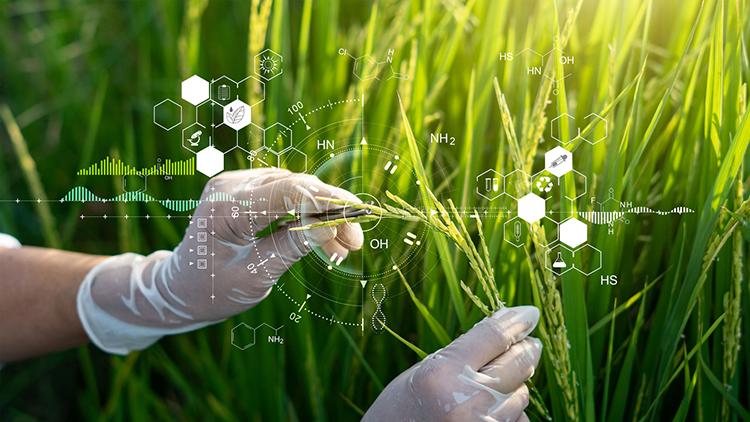
With new information, tools, abilities, and technologies, farmers have continually gotten better at their job — producing food — over the last years. Still, we can’t lose sight of the fact that we are growing those products to support and nourish an expanding population. The world’s people, our consumers, must want and feel good about what we are providing so that our markets can remain strong.
For that reason, the Center for Food Integrity (CFI) has been digging into why consumers accept (or reject) agricultural technologies. Understanding how people think about tools such as genetic engineering can help shape communication efforts. That way, strategies for bolstering the food supply are not removed from the farmer’s toolbox because consumers don’t feel comfortable with them.
CFI CEO Charlie Arnot explained in a webinar that the 260 personal interviews that made up their research were based on an “acceptance model” of agricultural technology. What influences a consumer’s attitudes about a process? The components they studied were:
• Voluntary exposure: A consumer wants choice in what they feed themselves and their family. When some participants learned they had been unknowingly consuming genetically modified (GM) foods, they were not happy, Arnot said. Providing information about the techniques used to make their food was very important to shoppers.
• Perceived “naturalness:” As a natural need, consumers want their food to fit what they perceive to be the natural order of the world. Arnot noted that this can become complicated with animal products due to the many different roles animals play in society.
• Perceived dread: When consumers consider products they are going to put into their body, they may be concerned about the effects of those foods on their health and wellbeing. Participants were more concerned about technologies they would ingest, like GMOs, than about external technologies like drones, Arnot explained.
• Perceived control: Similarly to wanting choice in their food needs, consumers want to be in control of what they do or don’t eat. Forcing technologies on them will not encourage acceptance.
• Disgust sensitivity: Everyone has certain foods they simply are not attracted to eating. Arnot calls this “disgust sensitivity” any kind of visceral reaction to an undesirable food. This perception is developed by cultural and personality factors.
• Attitudes toward new technology: Just as some people are more inclined to upgrade to the latest cellphone or computer technology, some are more willing to try new food technologies. Arnot described the difference as, “Do they view technology in their life as a solution or as a source of anxiety?”
• Cultural values: Our values, which typically develop as we’re growing up and learning about the world, are our drivers of giving or withholding trust. This is also true for food. What we are used to believing is “right” based on our culture and experiences will influence how we view new tools and ideas.
• Personal identification: Finally, Arnot described that we believe our food choices affect how people view us. We consider if accepting a technology will change our perception of ourselves or how others think of us.
All of these characteristics and thought processes play into the mental shortcuts, or heuristics, that we use to make everyday decisions — including for our food. The consumers CFI talked with followed these patterns, too, and Arnot added that nearly two out of three have at least a somewhat positive view of agriculture today.
Younger participants, like Millennials and Gen Z, were typically more accepting of food technologies, which Arnot said is very encouraging as the industry moves forward. But no matter the age, all consumers appreciated more information about the technologies used in their food so they can make informed decisions. They showed a willingness to seek information in multiple ways, from labels to third party websites. Letting consumers make their own decisions will be key in keeping food technologies a critical piece of the food supply question.

Katelyn Allen
Katelyn Allen joined the Hoard’s Dairyman team as the Publications Editor in August 2019 and is now an associate editor. Katelyn is a 2019 graduate of Virginia Tech, where she majored in dairy science and minored in communication. Katelyn grew up on her family’s registered Holstein dairy, Glen-Toctin Farm, in Jefferson, Md.
"want" - Google News
November 22, 2021 at 10:09PM
https://ift.tt/3xcDAkk
Consumers want control in food technologies - Hoard's Dairyman
"want" - Google News
https://ift.tt/31yeVa2
https://ift.tt/2YsHiXz
Bagikan Berita Ini















0 Response to "Consumers want control in food technologies - Hoard's Dairyman"
Post a Comment